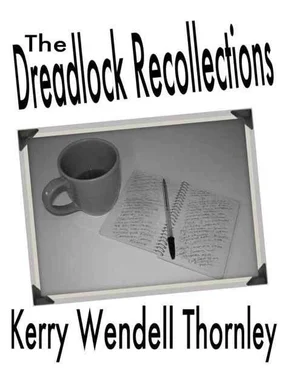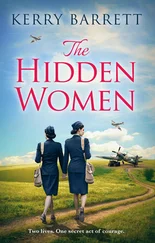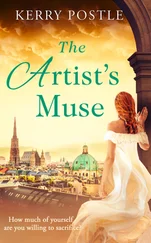According to The House of Krupp by Peter Batty, in February of 1956 Alfried Krupp "made an extensive tour of the Far and Middle East, dropping in to talk to business-heads in such capitals as Cairo, Bangkok, Delhi and Karachi. He was in fact the first major German industrialist to set foot in the area since the war. At the outset the trip was described as 'a serious attempt' to counter the Soviets' economic offensive in the underdeveloped countries of Africa and Asia, but on his return, discovering the Russians were now interested in buying from him, he changed his tune and hastened to deny that he was waging 'a private crusade against Communism', to the chagrin of many American diplomats whose blue-eyed boy he had recently become… Within a few months he was off again to Canada, though… Canadians were not so ecstatic at having a convicted war criminal in their midst and showed their discontent by staging demonstrations everywhere he went in their country. Alfried's reason for going there was his participation along with Cyrus Eatton, Khruschev's famous capitalist friend from Cleveland, Ohio," in a conference. (p. 254)
Significantly enough, it is noted elsewhere in the book that it was John J. McCloy, who was later to serve on the Warren Commission, and who has also been linked to Morgan banking interests, who rescued the Krupp fortune after the Nuremberg trials: "He had also to many people's surprise decided to cancel the order confiscating Krupp's properties, it had not been expected that he would go quite that far. McCloy's justification for his generosity was that no other war criminal had been punished in this way: 'Confiscation of personal (sic) property does not belong to the practices of our legal system and in general is in contradiction of the American conception of justice. I am not able, on the basis of the evidence against the accused Krupp, to find any degree of personal guilt which would put him above all the others sentenced by the Nuremberg courts.'" Batty goes on to say on the same pages, 233 and 234, "Later, when challenged by a number of eminent Americans to explain himself further, McCloy described his decision to release Krupp as the most 'wearing' he had ever had to make. But to his eternal shame, in my opinion at least, he also endeavored to play down the charges of slave-labor brought against Alfried at Nuremberg."
We also learn from The House of Krupp that "Alfried's first major Russian order came in 1957, after he had exhibited at the Leipzig East German Trade Fair the previous March, an action which at the time shocked many West Germans." (pp. 257, 258) It was a contract worth just over four million pounds for chemical works and three synthetic fiber plants "which ironically he was making under license from an American firm. This quickly led to closer and warmer relations between Moscow and Essen. Indeed when Mikoyan, the Russian Trade Minister, visited West Germany in 1958 he went out of his way to talk to Alfried's general manager, assuring him that 'the products of Krupp have an excellent reputation among our people.' A few weeks after this remark of Mikoyan, Khruschev, then Russia's Prime Minister, declared in a speech to the Central Committee of the Soviet Communist Party in Moscow that 'the Soviet Union has in the past entertained good relations with the Essen firm of Krupp.'
"Later that same year, a group of Krupp senior officials headed by their general manager were feted in Moscow; Mikoyan called them 'the first swallows of commerce from the western world.' The Russians were evidently very eager to do business with Alfried's men, but negotiations broke down on credit terms, though rumor had it that the real reason was that Alfried had been hobbled at the last moment by the Americans.
"Khruschev himself took a hand in the next stage of the wooing when, at the Leipzig Trade Fair in the following March, that is March of 1959, he made the East German press drop their usual denunciations of Krupps as warmongers, and of Alfried in particular as a convicted war criminal. Moreover, he visited the Krupp stand at the Fair and drank a toast to the firm out of a Krupp stainless steel tumbler filled with French Cognac, expressing regret that the head of the House was not there in person, but sending Alfried his good wishes all the same. Today, Alfried's name no longer appears on the Soviet list of war criminals and until quite recently the House of Krupp maintained a permanent office in Moscow: perhaps the two most remarkable, and at the same time the two most paradoxical, facts in the whole post-war rise of firm and family."
Possibly it was such maneuvering by Moscow that caused Mao Tsetung to denounce Khrushchev's policy of "peaceful co-existence" with the West as political revisionism, not, as many Americans were led to believe, any tolerance by the Russians for American democracy, or any particular hostility by the Chinese toward peaceful relations with the U.S.
But the most disturbing question plaguing me is why, with a record like that as American High Commissioner in Germany, was the Honorable John J. McCloy later appointed to the President's Commission on the Assassination of President John F. Kennedy?
In light of such data, one can only conclude that Brother-in-law was not deceived in believing there was a conspiracy on behalf of the Krupps in the highest levels of the U.S. government and that it was responsible during the war for sparing their armament factories from Allied bombing.
Slim and I, entering after Brother-in-law answered the door, found ourselves places to sit. For reasons possibly having to do with unconscious fears, I preferred the chair just inside the door, right next to it. Slim usually sat on the opposite side of the intimate living room, or somewhere in the middle, sometimes, to my right or my left.
"Would you like a cup of coffee?" Gary asked.
We both said, "Yes."
After handing me a weak concoction of instant-smelling stuff in a pastel blue plastic tea cup, Brother-in-law took a seat in the chair to my left and fiddled with his pipe and a pouch of Half & Half tobacco, exchanging comments with Slim about things pertaining to the mundane logistics of their relationship. A girlie magazine cover briefly attracted my attention.
Brother-in-law announced, very excitedly, "Kerry, I want to find out if the pen really is mightier than the sword!" Such were his opening words, and it was immediately obvious that this would be one of his days of striding about the room. "Do you agree that it is?"
"Yes. I was just thinking the other day that many people probably resort to violence because they lack the ability with words to express their anger any other way."
"Excellent! And do you think that if your life depended on it you could articulate the anger of others, of people who are more oppressed than you?"
"Definitely!"
"Wonderful! Then we shall find out which is mightier, the written word, or the force of arms."
"Have you ever seen a copy of the Diego Rivera painting called The Scream ?" Another of those questions.
"I'll tell you what I fear as a writer," I responded. "It is the people like Smerdyakov in The Brothers Karamazov , the people who miss the point of what you write, by taking it too literally or not literally enough, use it to justify actions you aren't actually recommending. Ivan Karamazov wrote an essay arguing that since there is no God there can be no crime, and Smerdyakov, his bastard brother, read it and murdered their father. Then later on he confessed to Ivan and said, 'But Brother, it was your idea!' Knowing that there will always be people like that, somewhere, reading what I have written, terrifies me."
"Yes, well, the author was trying to put across the idea that people need to believe in God whether or not there is a God, because otherwise they would become criminals, that if God didn't exist, then it would be necessary to invent Him," Brother-in-law explained.
Читать дальше












